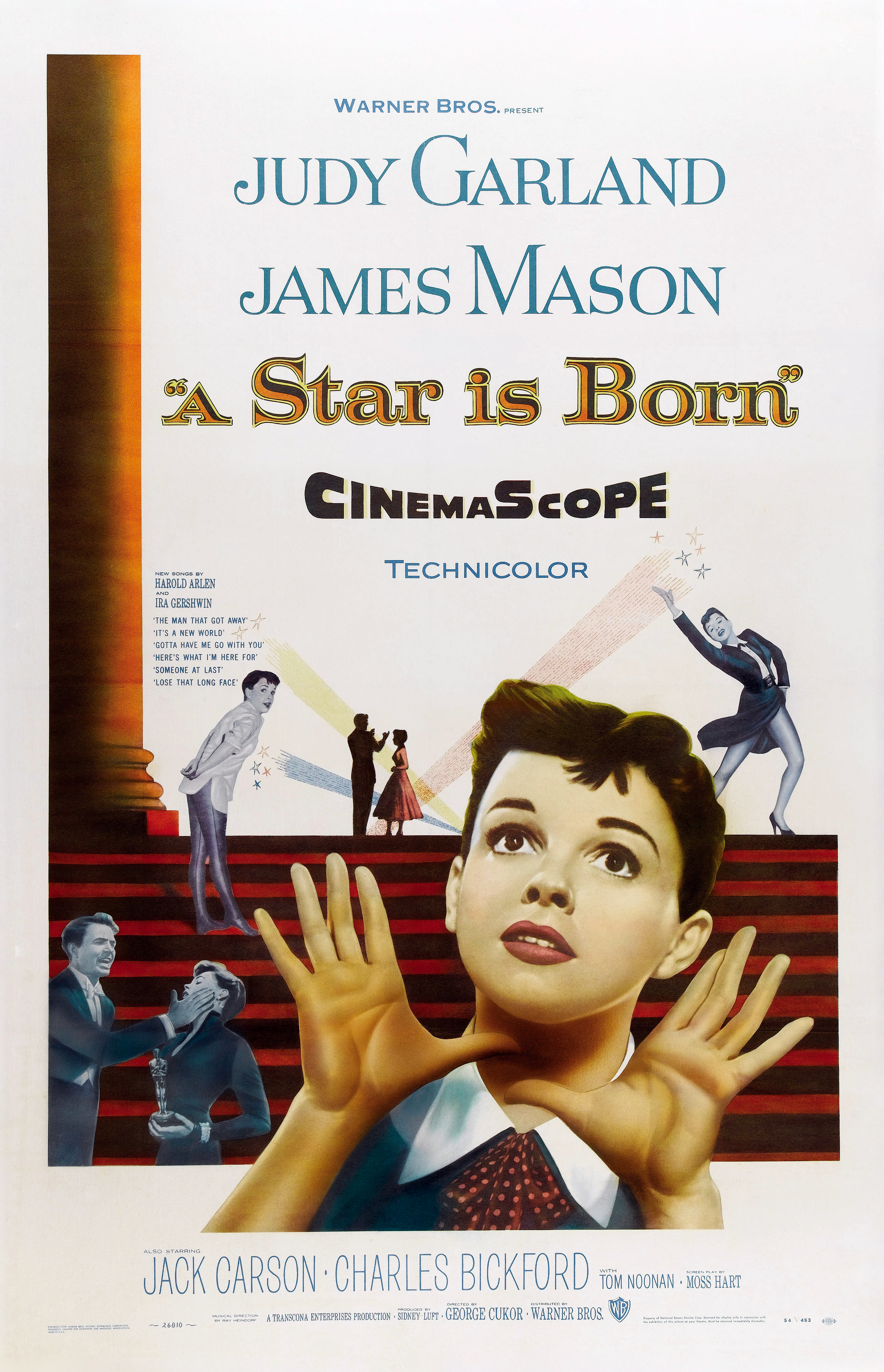A Star is Born (partially lost musical drama film; 1954)
A Star is Born is a 1954 dramatic musical directed by George Cukor and stars Judy Garland and James Mason. At the time of its release, it was the second most expensive movie ever made and the film received unanimous rave reviews from critics. Warner Brothers’ gamble seemed to have paid off. An Academy Award for Judy Garland seemed to be likely with the level of praise she was receiving for her performance, however, there was one criticism leveled by a vocal minority; the film was too long. The "too long" complaints would come back to haunt A Star is Born.
Re-Cut
Warner Brothers and exhibitors wanted more showings so there would be more screenings per day. In theory, they would have the potential to make more money. Director George Cukor was out of the country and unavailable to assist in this re-editing process. Jack Warner took over and with the help of an editor on staff, re-edited the film. The editor attempted to contact George Cukor via telegram because he was disturbed by what he was being asked to cut. The editor never heard back.
Once this process was over, the runtime stood at 154 minutes. Much of what Warner cut was critical to the development of the relationship between the two central characters. Two musical numbers were also cut from the final film, "Lose That Long Face" and "Here’s What I’m Here For."
Before the cuts to the film, the film was holding strong in its 181-minute runtime at the box office. The re-cut version caused the box office to take a sharp decline.
Dozens of angry letters were sent to Warner Brothers about the film's shortened version and not just from film fans, a theater owner from Maine is quoted as saying that what was done to the film was "inexcusable" and stated that he lost money running the re-cut version of the movie at his movie theater. New York Times critic Bosley Crowther (who gave a glowing review of the film when the film was shown at its original length) said this of the shortened version:
"A star is shorn…. every cut leaves a gaping hole. Not only the emotional pattern but the very sense of the thing is lost."
The good word-of-mouth disappeared. Warner Brothers lost millions of dollars and despite all of this, when Judy Garland was nominated for an Oscar for her performance, most thought she would be declared the winner. Grace Kelly won the award in a shocking upset. Even though she gave what Time magazine called ‘just about the greatest one-woman show in movie history’. The movie’s failure at the box office and the loss of the Oscar marked the end of her career as a major film star. Many (including George Cukor) believed that the shortening of the film is what cost her the award.[1]
1983 Restoration
In 1981, film historian Ron Haver was granted access to search the Warner Brothers archives. Haver had been informed that audio for the 181-minute version had been located but the corresponding film footage was nowhere to be found. Haver was confident that the footage existed, and he theorized it was in a mismarked can of footage. For around nine months, Haver went through the archives, by the end he had gone through two hundred film cans and found some useable footage but not as much as he had hoped. Haver considered the rest of the footage lost for good. Later, he was told the studio melted down the cut scenes for the silver content. For his restoration of the film, Haver opted to use production stills of the deleted scenes to fill out the portions where no surviving footage was found. The final runtime of Haver’s restored version clocked in at 176 minutes. [2][3]
Rumors of an Uncut Print
In 2010, an article was posted on The Judy Room by Scott Brogan that an uncut print allegedly exists. He had two sources independently name the mystery collector with the uncut print. The first was an employee with Warner Brothers who chose to remain anonymous but when asked about the possibility of a mystery collector who had an uncut print, the employee answered that it was common knowledge this collector was Michael Arick. The other was a man by the name of Joseph Caporiccio. [4] Michael Arick has never confirmed nor denied these claims.
